Close UP
General Incorporated Association Choiceful ~We aim to create a society where all children have hope for the future, by connecting families raising children to the support they need.~
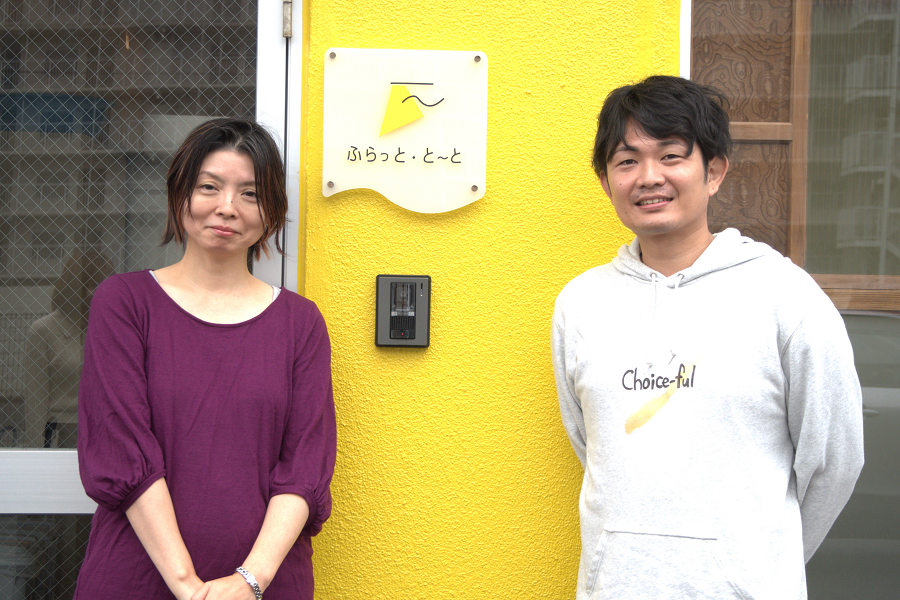
General Incorporated Association Choiceful is an organization working on the issue of child poverty, in Adachi ward. Choiceful supports families raising children, through activities such as food delivery, a food pantry, and by creating a place to belong. They aim to eliminate the disparity of choices surrounding children, by connecting families raising children to options for social resources and support systems; of which there must be plenty. Choiceful says that in recent years there have been more opportunities to connect with families of foreign roots. We spoke with Mr. Taisei Kurino, representative director of Choiceful, and Ms. Masako Atsumi, facility director of Flat Toto, where Choiceful uses as a venue for its activities.
We aim to realize "a society where children have hope for the future regardless of their circumstances of birth and upbringing."
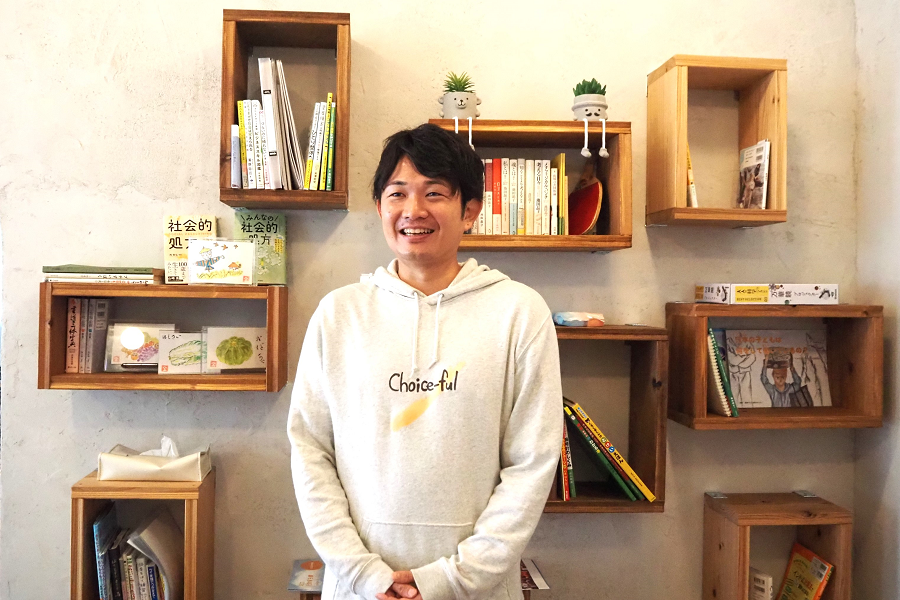
Choiceful is a general incorporated association that works to improve the environment surrounding children and families raising children, aiming to realize "a society in which children have hope for the future regardless of the environment in which they were born and raised." They are based in Adachi ward and work closely with families raising children who face socioeconomic difficulties, and provide a variety of support services.
Mr. Kurino says that the reason he focused on the issue of child poverty was largely due to his own childhood experiences.
"I grew up in a poor family in rural Kagoshima. I felt uneasy about the fact that various options were limited due to my family's economic situation. This led me to my current activities," says Mr. Kurino.
Mr. Kurino was first inspired to start food delivery, one of Choiceful's current activities, because of his awareness of a free English class he was working on to help correct the education gap.
"It was hard for me to connect with the families and children to whom we wanted to offer our support. I felt that I needed to reach out to them and deliver support, rather than just wait and see."
Then, Mr. Kurino started a food delivery service, "Adachi Wakuwaku Bin," in Adachi ward. Later, Mr. Kurino merged his business with "Adachi Kids Cafe," a children's cafeteria in Adachi ward, operated by Ms. Mihoko Kashiwakura, and established Choiceful in 2021. The name of the organization, Choiceful, expresses its wish to create a society in which children with socioeconomic difficulties can feel that they have many choices.
We create relationships and systems that can lead to necessary support by keeping connected with families raising children at various points of contact.
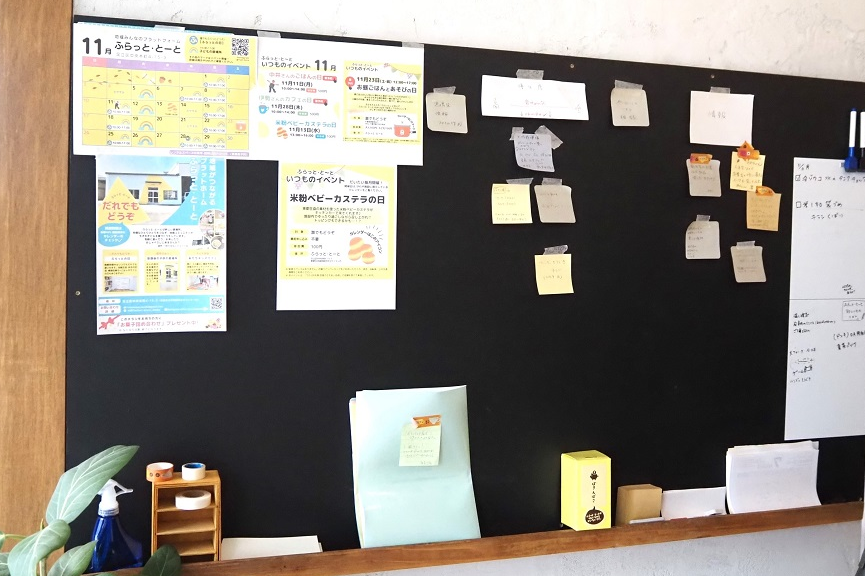
Choiceful is currently developing three major projects to solve the problem of child poverty, and break the cycle of poverty.
- Food assistance projects: such as "Adachi Wakuwaku Bin," which connects and watches over people through food deliveries, and food pantries.
- Projects providing a place-to-belong: such as the operation of Adachi Kids' Café; which adds play experiences to the children's cafeteria and aims to create a third place for kids that is neither home nor school.
- Tsunagi-Care project: provides needed information and support through consultation on daily life, using LINE.
Through these projects, Choiceful creates various contacts with families raising children and continues to connect with families who have been isolated in the community. In the process, Choiceful also works with social workers, school social workers, and others, to develop an outreach system connecting those families with support when needed.
For example, in Choiceful's food delivery service "Adachi Wakuwaku Bin," a staff member called a "watch volunteer" delivers food to each household once every one to two months, depending on the situation of the child-rearing family. Volunteers not only deliver food each time, but also build a relationship of trust with the families by chatting with them and asking them about their children’s condition, and problems. Social workers also participate in LINE chats with connected families - to coordinate food delivery schedules and other matters - and gradually deepen support by providing necessary information and building companion support.
"I think it is important that we are 'connected' through LINE. As we continue to communicate with families, some of them use the site as a place to complain about child-rearing or to whine. I feel that it is only because we are in the private sector that we can build relationships like friendships among mothers in this way, and connect them to appropriate support," says Ms. Atsumi.
We remove as many "barriers" as possible for users, by increasing support options.
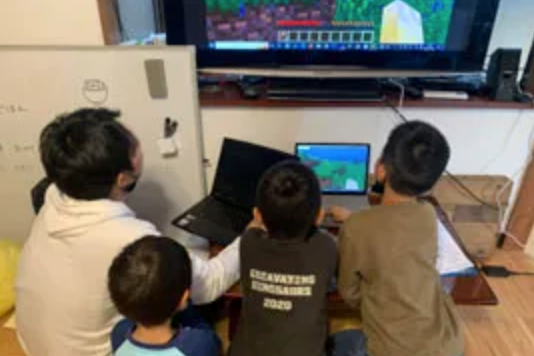
Photo Courtesy: Choiceful
Mr. Kurino, who says he wants to remove as many barriers as possible for users, mentions the three barriers at the time of receiving assistance.
"I feel that the social prejudice against welfare recipients and the negative image of children’s cafeterias by some people have created an invisible 'barrier' that makes it difficult for those who need to receive support. In the past, some users did not want their neighbors to know that they were receiving support. There are also "time barriers" and "distance barriers," and beyond these barriers, we are devising various ways to deliver support to those who need it."
For example, by offering the option of food delivery as well as a food pantry, support is available to those who do not have the time or are unable to travel. Children's cafeterias have eventful names such as "Childcare Library," "Kids' Cafe," and "Meal and Play Day," and Choiceful makes it easy for children to attend these events. In terms of support in creating places to belong, Choiceful has also established an online place for children who are not attending school and other children who are unable to come to the actual place where the activities are held.
Approximately 200 people, ranging in age from high school students to those in their 70s who live in and outside Adachi ward, have registered as volunteers and are participating in activities. It seems that Choiceful has become a platform for activities that are easy to participate in, just as it is for users of Choiceful. The wide variety of Choiceful’s activities suggests that there are many different roles for volunteers, and that participants of diverse ages and backgrounds can easily get involved by making use of their interests and expertise.
We provide flexible support so that handicaps do not become a barrier to receiving assistance.
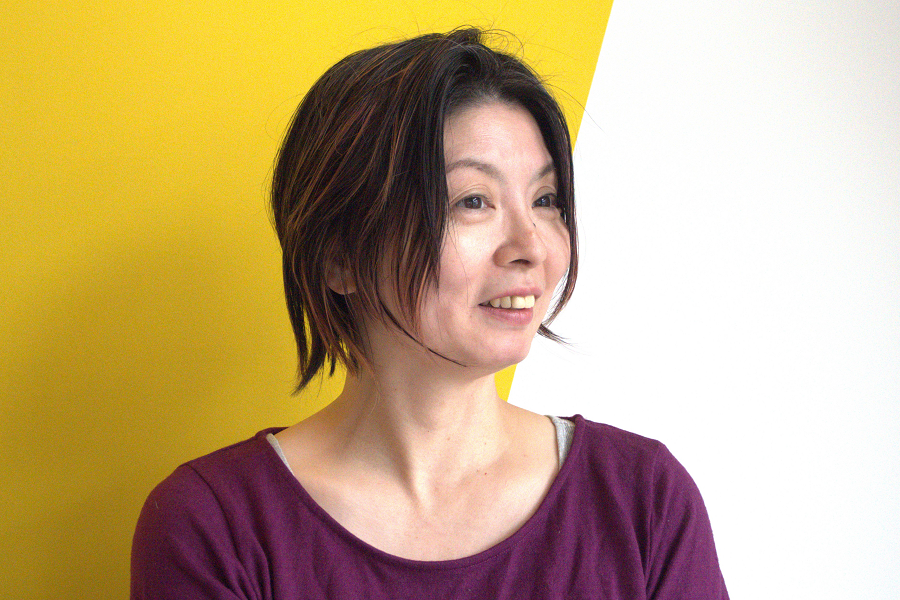
Among the approximately 400 households to which Choiceful delivers food, 20% are families with foreign roots. They feel that there are more users of food delivery than ever before, as well as a more diverse range of nationalities.
Many of the families that Choiceful is connecting with through school social workers and communities of foreign residents in Japan commonly face a "Japanese language barrier." Even though children who attend school speak Japanese, their parents are often isolated in the community because they do not understand Japanese; making it difficult for families to reach out for support.
"I believe that many parents are under the stress of not being able to communicate, and it takes time before they take action to reach out for support. Especially in the case of (families with) children who are not going to school, there are fewer ways to determine the status of children. When we deliver food to someone's home, we see that a child is always sleeping under the futon covers or watching TV in a dark room, and we can only gradually figure out their situation, that maybe (this child) does not attend school," says Ms. Atsumi.
Choiceful is often contacted by these foreign families who say they have "nothing to eat today" because the rising cost of living has made life difficult for them, or they are unable to work due to injury, pregnancy, or raising children.
"When social conditions become more severe, there is an impression that life is more affected by those with handicaps such as language or disabilities. Those people are often left out of the support system".
Choiceful delivers necessary information to foreign families using plain Japanese and translation applications. They also assist foreign families with translations of various paperwork and help each family connect with the support they need.
We establish a system to deliver necessary assistance to those who truly need it.

Photo Courtesy: Choiceful
Mr. Kurino says that the biggest challenge of poverty is that the more a person really needs help, the harder it is for them to receive the help they need. "First of all, I feel that information is not reaching (the people who need it.) There are about 30 organizations in the Adachi ward that offer children’s cafeterias and food pantry activities, but many people are still unaware that such support is available nearby. In addition, some families are not able to make good use of the current system because their problems are complicated and compounded by multiple issues at the same time, not just financial difficulties. Some families try to hide their problems within the home for fear of social prejudice and discrimination and have become isolated in the community. We believe that we must persistently address the issue that the more difficult the situation is for people, the more they are unable to reach the necessary support and escape from poverty," says Mr. Kurino.
Choiceful's future goal is to connect with all of the approximately 7,000 households in Adachi ward that receive a child-rearing allowance.
"Our goal is to connect with all 7,000 households in three years, and become a safety net in the Adachi ward. However, I don't think this is something that can be done by Choiceful alone, so I would like to promote this project in cooperation with other organizations operating in the Adachi ward. In parallel, we are also working on a one-stop support desk to make the consultation service accessible and user-friendly. In the future, we are considering joining hands with organizations that support people with foreign roots and LGBTQ people to operate a single consultation desk. By doing so, we would like to create an environment where people with complex problems comfortably consult with us. Once we can create this system, we would like to expand it to other municipalities, and throughout the country. I would be happy if we could eventually develop this system in my home prefecture," Mr. Kurino says emphatically.
Adults in the community work hand in hand to support families raising children, so that they can grow up healthy and happy.
*This article is based on information available at the time of the interview. For the latest information, please contact the organization directly.
